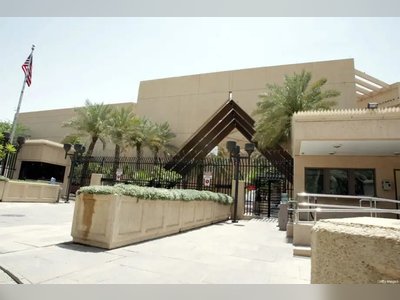0:00
0:00
Southeast Asia moves closer to economic unity with new regional payments system
In a major step towards economic unity, Southeast Asian nations have launched a new regional cross-border payment system. This move could foster financial integration among participants, bringing the ASEAN bloc closer to its goal of economic cohesion.
The program allows residents in Indonesia, Malaysia, Thailand, and Singapore to pay for goods and services in their local currencies using a simple QR code. The Philippines is also expected to join the initiative soon, according to each country's respective central bank.
This regional payment system comes after the five Southeast Asian countries signed an official agreement last year and reiterated their commitment to the project at the recent ASEAN summit in May. They pledged to work on a road map to expand regional payment links to all ten ASEAN members.
The primary aim of this scheme is to support and facilitate cross-border trade settlements, investments, remittance, and other economic activities to create an inclusive financial ecosystem in Southeast Asia.
Experts believe that retail industries will particularly benefit from an expected rise in consumer spending, which could, in turn, strengthen tourism.
One of the critical objectives of this system is to reduce the region's reliance on external currencies like the U.S. dollar for cross-border transactions, especially for businesses. The strength of the U.S. dollar in recent years has led to weaker ASEAN currencies, hurting economies in the bloc, most of which are net energy and food importers.
By connecting QR code payment systems, funds can be easily sent from one digital wallet to another. These digital wallets can act as bank accounts and can be linked to formal financial institutions.
This system is expected to be particularly advantageous for micro-enterprises and small- and medium-sized businesses, which make up over 90% of businesses in Southeast Asia. It will also benefit marginalized individuals from low-income backgrounds, as it can be used by the unbanked population.
However, challenges lie ahead. Central banks will need to address security and fraud concerns and educate the public to embrace the new payment system. Additionally, there are concerns about potential currency pressures, particularly on the Singapore dollar, as it might emerge as a de facto reserve currency within the region.
Despite these challenges, analysts believe that a unified cross-border digital payment system will foster a sense of regionalism and ASEAN-centrality in managing international affairs, especially in light of escalating tensions among major global powers.
This coordinated action will require strong political will from regional leaders, and its success will determine whether ASEAN members can effectively implement this ambitious venture.
With this new payments system, Southeast Asia is paving the way for economic independence and stronger economic ties with a more integrated financial landscape in the region.
This regional payment system comes after the five Southeast Asian countries signed an official agreement last year and reiterated their commitment to the project at the recent ASEAN summit in May. They pledged to work on a road map to expand regional payment links to all ten ASEAN members.
The primary aim of this scheme is to support and facilitate cross-border trade settlements, investments, remittance, and other economic activities to create an inclusive financial ecosystem in Southeast Asia.
Experts believe that retail industries will particularly benefit from an expected rise in consumer spending, which could, in turn, strengthen tourism.
One of the critical objectives of this system is to reduce the region's reliance on external currencies like the U.S. dollar for cross-border transactions, especially for businesses. The strength of the U.S. dollar in recent years has led to weaker ASEAN currencies, hurting economies in the bloc, most of which are net energy and food importers.
By connecting QR code payment systems, funds can be easily sent from one digital wallet to another. These digital wallets can act as bank accounts and can be linked to formal financial institutions.
This system is expected to be particularly advantageous for micro-enterprises and small- and medium-sized businesses, which make up over 90% of businesses in Southeast Asia. It will also benefit marginalized individuals from low-income backgrounds, as it can be used by the unbanked population.
However, challenges lie ahead. Central banks will need to address security and fraud concerns and educate the public to embrace the new payment system. Additionally, there are concerns about potential currency pressures, particularly on the Singapore dollar, as it might emerge as a de facto reserve currency within the region.
Despite these challenges, analysts believe that a unified cross-border digital payment system will foster a sense of regionalism and ASEAN-centrality in managing international affairs, especially in light of escalating tensions among major global powers.
This coordinated action will require strong political will from regional leaders, and its success will determine whether ASEAN members can effectively implement this ambitious venture.
With this new payments system, Southeast Asia is paving the way for economic independence and stronger economic ties with a more integrated financial landscape in the region.









